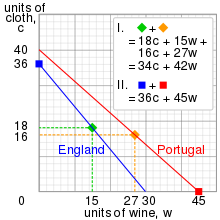 In 1999, I lived in a modest, rented townhouse in Redmond, Washington with my wife and a year-old baby. I had just quit my academic R&D position in a fit of pique over issues of contracts and conscience, and had uprooted our lives to go to Microsoft to be a program manager while still harboring an academic’s independent streak. I had hair down to nearly my waist that I tied back in a ponytail after it dried a bit on my way to work. I had a coordinating goatee, too. On dark, overcast days I would sometimes reach back to reposition my hair tie and the cinched area would still be mildly damp into the afternoon.
In 1999, I lived in a modest, rented townhouse in Redmond, Washington with my wife and a year-old baby. I had just quit my academic R&D position in a fit of pique over issues of contracts and conscience, and had uprooted our lives to go to Microsoft to be a program manager while still harboring an academic’s independent streak. I had hair down to nearly my waist that I tied back in a ponytail after it dried a bit on my way to work. I had a coordinating goatee, too. On dark, overcast days I would sometimes reach back to reposition my hair tie and the cinched area would still be mildly damp into the afternoon.
In Seattle that year, the World Trade Organization came to meet and with it violent protests over, well, what was it over? Some of it had to do with the notion of globalization of the economy. Some of it had to do with a hope for labor empowerment. Some of the participants were just anarchists, it seemed. I had a run-in one morning with a door guard-type who thought I had tailgated her through a security door at Microsoft. We had been warned in a corporate-wide email about security concerns were the protests to come out to the suburbs. I dutifully backed out, pulled the door shut, and ran my access card to open the door. Curiously, even after that, she decided not to ride the elevator up with me, a look of uncertainty and fear in her eyes.
And then there were the Occupy Wall Street protests of 2011 that felt similar to those Seattle actions of more than a decade before.
Kurt Andersen, author of the memorable Fantasyland, has a new book and a new Atlantic essay, College-Educated Professionals Are Capitalism’s Useful Idiots, that continues his theme of capturing intellectual history as a series of consistent trends that are easily observable and digested.… Read the rest

